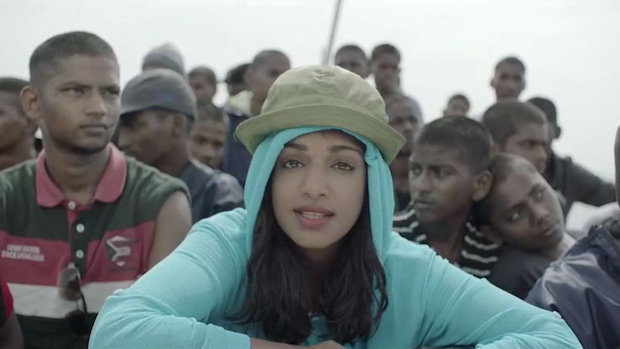Having had a career in music that has always – since the start – been linked to politics, if there is one thing we love about M.I.A., it’s her absolute refusal to compromise. In times of heightened conflict, political unrest, or really any situation she deems as bullshit, we can always rely on her to shine a light on “controversial” topics in a real, rational and sometimes uncomfortable way.
She recently released her latest single, Borders, and it’s accompanying video- both of which focus on the refugee crisis. In the video, she is sitting on a boat overflowing with people whilst singing lyrics like, “Borders, what’s up with that?” It’s simplistic in its approach but clever in the way it gets straight to the point from the get go. She’s not playing around.
Now, in the aftermath of that release, M.I.A. has sat down for a short interview with NPR in which she discusses the crisis in a little more depth. Having been a refugee herself during the Sri Lankan civil war, she has a unique view that many in the Western music world just don’t have.
“As a musician, I feel like we are part of promoting ideas to people. You know, ultimately we fight to get what we do in the West into the homes and the screens of every single person on the planet. We want to make money off it, and you want to sell 50 million Taylor Swift records to people in Africa. Obviously, some of the kids are gonna say, ‘Okay, yeah, I want the dream,’ and you’ve got migrants who believed in the aggressiveness of our sale of democracy. We can’t really blame people when they are ready to embrace it.”
She also went on to ask one of the most hard-hitting questions that have been raised throughout out this entire crisis. “If the West is so deliberate in promoting its brands and is using art and culture to inspire people’s dreams,” she asks, “how can the West then turn people away?
“You don’t put the borders on Apple, you don’t put borders on YouTube, and you don’t put borders on MTV. So to make the borders even taller when actually what the creative world is doing, or the business world is doing, is actually the opposite, then you’re always going to have this problem.”
Stream the interview for yourself below, and check out her Borders film clip here.

